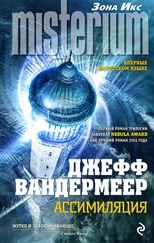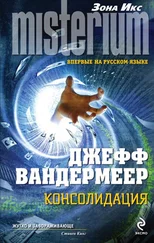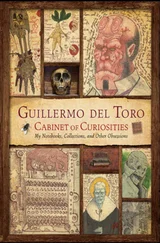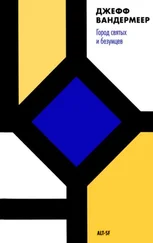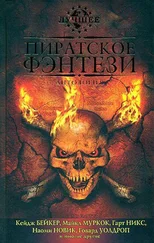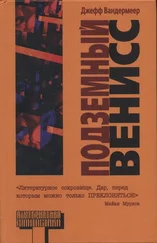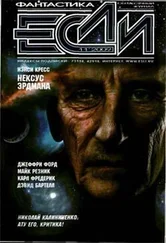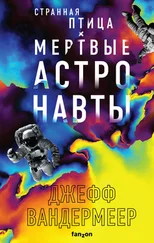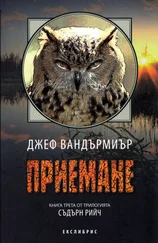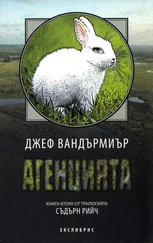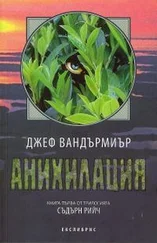Джефф Вандермеер - The Thackery T. Lambshead Cabinet of Curiosities
Здесь есть возможность читать онлайн «Джефф Вандермеер - The Thackery T. Lambshead Cabinet of Curiosities» весь текст электронной книги совершенно бесплатно (целиком полную версию без сокращений). В некоторых случаях можно слушать аудио, скачать через торрент в формате fb2 и присутствует краткое содержание. Жанр: Фэнтези, на английском языке. Описание произведения, (предисловие) а так же отзывы посетителей доступны на портале библиотеки ЛибКат.
- Название:The Thackery T. Lambshead Cabinet of Curiosities
- Автор:
- Жанр:
- Год:неизвестен
- ISBN:нет данных
- Рейтинг книги:5 / 5. Голосов: 1
-
Избранное:Добавить в избранное
- Отзывы:
-
Ваша оценка:
- 100
- 1
- 2
- 3
- 4
- 5
The Thackery T. Lambshead Cabinet of Curiosities: краткое содержание, описание и аннотация
Предлагаем к чтению аннотацию, описание, краткое содержание или предисловие (зависит от того, что написал сам автор книги «The Thackery T. Lambshead Cabinet of Curiosities»). Если вы не нашли необходимую информацию о книге — напишите в комментариях, мы постараемся отыскать её.
The Thackery T. Lambshead Cabinet of Curiosities — читать онлайн бесплатно полную книгу (весь текст) целиком
Ниже представлен текст книги, разбитый по страницам. Система сохранения места последней прочитанной страницы, позволяет с удобством читать онлайн бесплатно книгу «The Thackery T. Lambshead Cabinet of Curiosities», без необходимости каждый раз заново искать на чём Вы остановились. Поставьте закладку, и сможете в любой момент перейти на страницу, на которой закончили чтение.
Интервал:
Закладка:
First: Don’t allow superstitions to cloud what I’ve written. Everything that occurred had a mundane, natural explanation. Honor Dr. Lambshead’s memory. He would not want you engaging in tempting flights of fancy.
Second: There is no way to prove my assertions. I admit this suits my purposes as I remain dedicated to protecting my secrecy. It’s only because of the recent conventions merging memoir and fiction that I can tell this story at all. I hide behind the edifice of literary convention, and its helpful construction of the unreliable narrator.
As for objects that might substantiate my claims, there are only two. One, the bull, was long ago disassembled. Two, the stuffed corpse of a mysterious sea bird, such as the one listed in your exhibit’s inventory as One Tern, Stuffed, Moderate Condition—as to this latter item, I hope you will forgive me. I cannot risk you examining its feathers and concluding my claims are true. Therefore, I’ve relieved your exhibit of one stuffed bird, though I hope you will equally enjoy the plastic flamingo I’ve left in its place.
Of course that’s not my only reason for making off with your treasure. After being reborn in 1943, I was understandably too preoccupied to track down Dr. Lambshead for several years. I was unable to investigate as an adult, either, for reasons too complicated and personal to note here. I did attempt to pilfer both bird and notes after Dr. Lambshead’s death, but the collapsed basement thwarted my attempts.
Thus it was with great pleasure that I received my invitation to preview the exhibit. It was with even greater pleasure that I discovered your security guards to be both affable and susceptible to drugs.
My consolations for your loss—and thank you for the bird.
1963: The Argument Against Louis Pasteur
By Mur Lafferty
Is it odd that my clearest memory about Dr. Lambshead, world traveler, collector, and chronicler of the obscure, was his hatred of Louis Pasteur? I suppose when you connect a gastronomically violent reaction to a memory, that particular recollection sticks longer than others do.
It was 1963. I remember because I was to have been in Dallas to cover Kennedy’s visit the following week, but I was unable to go because I was too weak due to my visit with Dr. Lambshead.
I had gotten a choice assignment to interview Dr. Lambshead, who agreed to meet me in his own home. I brought three notebooks and three pencils, but never thought to bring my own cream.
The doctor was polite yet distracted, as he poured my tea and added a dollop of cream without asking me if I preferred it (I didn’t). I was focusing on my books and idle chitchat with Lambshead (I don’t remember what about; that was erased by the next forty minutes), I took a large gulp of the Earl Grey. When the curdled cream hit my system, my skin broke out in a cold sweat and I found myself in the profoundly embarrassing position of needing, if not a toilet, a chamber pot where I could be politely ill.
The doctor took my request in stride, pointing me to the head and saying through the door that it was “only a bit of food poisoning, [I] should get over it posthaste and we can start the interview.”
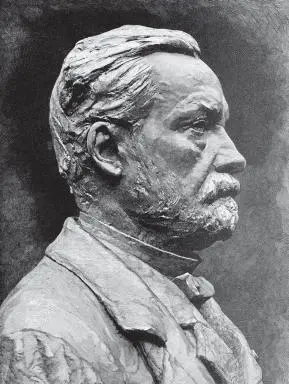
Louis Pasteur, 1822–95
I’m sure I would have enjoyed looking at the fascinating drawings and pieces of art, including an odd anatomy chart that hung, water-wrinkled, in the curtainless shower, but I was too busy voiding the very fine salmon I’d just had for lunch. And the tea. And the wretched cream. And possibly some stomach lining.
When I returned to him, shaky and pale, but confident I could at least finish this rarest of rare interview opportunities (Lambshead was not often at home in the sixties), he started talking, not about his research but about Louis Pasteur. He derided the French scientist, saying that the world honored him for pasteurization, but Lambshead could easily name fourteen strains of bacteria that could figure out how to maneuver Pasteur’s innovative S-shaped flask.
“You can’t even call that a maze,” he said, laughing.
I glanced at my teacup, with little lumps of curdled cream floating in it, and asked if that was why he refused to use pasteurized milk.
He waved me off, not answering, and motioned me to stand. “If you want to see a way to battle bacteria, come with me.”
He led me back to the kitchen (the cream bottle sat on the counter, the cream clearly separated. I looked away) and out the back door. A cellar door sat flat in the lawn, surrounded by odd purple plants and prickly flowers. I was no botanist, but I was pretty sure they weren’t native to England. I had no chance to ask about them, as he quickly hefted the door open and led me to the basement.
“There’s no light right now, so just give me a second,” Lambshead said. “Pasteur would have killed to see this. He would have eaten his hat .”
There was indeed no light, but the basement was oddly dry and warm, something you didn’t really see in an underground, English room made of stone. The dim daylight that dared to follow us into the basement tentatively touched a couple of shelves, and I gasped. The doctor had taken me to his cabinet, and I could see almost nothing! I could make out a large table in the corner with a single chair, both table and chair covered with various books, maps, and, I think, a taxidermed three-legged platypus.
One shelf had stuffed (although I could swear I saw one move, but it was dark) tropical birds. I tried to make out what was in some glass globes that looked as if they were full of mist and fireflies. Lambshead rummaged in a corner, murmuring to himself. I could make out, “If he’d just held out five years, we could have done so much together, but he died a moron.”
(I later checked on this: Lambshead was born in 1900, and Pasteur died in 1895. I knew Lambshead was a child prodigy, but what he thought a seventy-eight-year-old man would have learned from a newborn, I did not ask.)
I reached out my finger to touch what looked like a finely crafted wooden horse, but then pulled back. Something had shifted, almost imperceptibly, inside.
An ancient spear sat propped in the corner opposite the door, and I peered at it. The spear was filthy, still bloody from the poor victim that had been pierced last. I shook my head. On the floor next to the spear lay at least twenty pots, most of them closed, but one on its side, shattered, with dust spilling out everywhere.
Something that looked like a bouquet of dried scorpions stuck up from another urn, and I decided I would not try to touch anything else.
Then Lambshead made an “aha!” sound, and I heard a crash as he tried to extricate something from a pile. He looked down at the floor and frowned. He said, “That was unfortunate, I should get Paulette to clean that up before it spreads,” and then took my arm. I followed him reluctantly out to the sunny afternoon and watched as he closed the door.
But then I saw what he held, and the mysteries under the floor seemed unimportant. It was a most curious item; a flask, like Pasteur had created, but that was like saying a Chevy Sedan is a carriage much like Maximus Creed from Rome had cobbled together in 200 B.C. A large bulb at the bottom held a clear, broth-like liquid, but the neck of the flask swooped down in Pasteur’s S shape, and then split in three, one swooping back up into a spiral that nearly reached two feet high, and then ended at a sealed glass nipple. Another branch of glass wound round itself, creating knots and curlicues; I counted at least three different sailor’s knots and one Celtic knot, and seven more I couldn’t identify, some seeming to actually have glass tubes entwined with it that started nowhere and ended nowhere. This whole complex mess wound round the bulb in a spiral, swooping back up to form the open mouth of the flask. The third branch was the strangest, stretching up and then coming back down to go back into the bottle, and, as far as I could tell, back out the bottom, only to fold back and actually form the bulb of the jar itself. This made it a Klein bottle (named for Felix Klein, d. 1882, and, unlike Pasteur, apparently a man not to be derided by Dr. Lambshead), sharing its inner and outer side.
Читать дальшеИнтервал:
Закладка:
Похожие книги на «The Thackery T. Lambshead Cabinet of Curiosities»
Представляем Вашему вниманию похожие книги на «The Thackery T. Lambshead Cabinet of Curiosities» списком для выбора. Мы отобрали схожую по названию и смыслу литературу в надежде предоставить читателям больше вариантов отыскать новые, интересные, ещё непрочитанные произведения.
Обсуждение, отзывы о книге «The Thackery T. Lambshead Cabinet of Curiosities» и просто собственные мнения читателей. Оставьте ваши комментарии, напишите, что Вы думаете о произведении, его смысле или главных героях. Укажите что конкретно понравилось, а что нет, и почему Вы так считаете.

